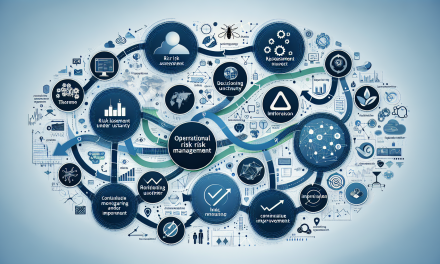Table of Contents
- Introduction
- What is Advanced Data Analysis?
- Why is Data Analysis Important?
- Key Skills to Master Advanced Data Analysis
- Techniques and Tools for Effective Data Analysis
- Applying Data Analysis in Business
- Frequently Asked Questions
- Conclusion
Introduction
In today’s data-driven world, businesses thrive when they effectively leverage data analytics. Mastering advanced data analysis techniques not only enhances decision-making but also drives business growth and innovation. Moreover, understanding how to analyze and interpret data effectively helps professionals in various sectors to unlock new opportunities.
What Is Advanced Data Analysis?
Advanced data analysis involves utilizing sophisticated methods and tools to extract meaningful insights from complex data sets. Unlike basic data analysis, which often focuses on summarization and reporting, advanced techniques dive deeper into data patterns, correlations, and anomalies. Consequently, these insights facilitate strategic decision-making and foster better operational outcomes.
The Evolution of Data Analysis
Data analysis has evolved significantly over the years. Initially, businesses relied on simple statistical methods. However, with the explosion of big data and advancements in technology, organizations are now applying machine learning models, predictive analytics, and data mining techniques. As a result, these methods enable data professionals to forecast future trends and make data-driven decisions effectively.
Why is Data Analysis Important?
Understanding the significance of data analysis in modern business operations cannot be overstated. Here are several compelling reasons:
Improve Decision-Making
Data analysis equips businesses with facts and figures, allowing decision-makers to base their strategies on real insights rather than instincts. Therefore, organizations can minimize risks and explore new opportunities with confidence.
Enhance Operational Efficiency
By analyzing data and identifying inefficiencies, companies can streamline their operations. Consequently, this leads to reduced costs and improved productivity, which are vital for maintaining a competitive edge.
Boost Customer Satisfaction
Understanding customer behavior through data analysis allows businesses to tailor their products and services. Furthermore, this personalization fosters customer loyalty, leading to increased sales and business growth.
Key Skills to Master Advanced Data Analysis
To excel in advanced data analysis, professionals should cultivate a variety of skills. Here are the essential ones:
Statistical Knowledge
A solid foundation in statistics is crucial. Analyzing data often requires understanding different statistical methods and concepts, which help draw valid conclusions.
Programming Proficiency
Knowledge of programming languages like R or Python is essential for manipulating and analyzing data efficiently. These languages provide powerful libraries and frameworks that facilitate complex analysis tasks.
Data Visualization Skills
Visually representing data is vital for effective communication. Learning tools such as Tableau or Power BI enhances one’s ability to create compelling visual narratives that convey insights clearly.
Techniques and Tools for Effective Data Analysis
Here are some advanced techniques and tools that elevate data analysis capabilities:
Predictive Analytics
Predictive analytics uses historical data to forecast future outcomes. By applying statistical algorithms and machine learning techniques, businesses can anticipate customer behavior effectively.
Data Mining
This technique involves exploring large data sets to uncover hidden patterns and relationships. Data mining helps organizations discover trends that can lead to informed decision-making.
Machine Learning
Machine learning algorithms enable systems to learn from data and improve their performance over time. These algorithms facilitate advanced predictions and can automate decision-making processes.
Tools for Analysis
- R: A programming language and software environment specifically designed for statistical computing.
- Python: This versatile language supports data manipulation and analysis seamlessly.
- Tableau: A powerful tool for data visualization that allows users to create interactive dashboards.
- Power BI: A business analytics tool that transforms raw data into informative visuals.
To enhance your skills in these techniques and tools, consider delving deeper into resources like the Advanced Analytics & Data Analysis Techniques Training Course, which offers extensive insights into these advanced methodologies.
Applying Data Analysis in Business
Applying data analysis strategies can significantly impact business performance. Here are some areas where data analysis plays a crucial role:
Marketing Strategies
Effective marketing relies on understanding customer preferences. By analyzing data, businesses can create targeted marketing campaigns. Additionally, this data-driven approach aids in budget allocation for maximum return on investment.
Sales Forecasting
Businesses can utilize data analysis to predict future sales trends. This forecasting facilitates better inventory management and staffing decisions, thus optimizing operational efficiency.
Risk Management
Analyzing data helps organizations identify potential risks and implement strategies to mitigate them. Mastering operational risk management emerges as a critical competency—check out this comprehensive guide for best practices in the field.
Corporate Governance
Data analysis also enhances corporate governance by facilitating better auditing strategies. An organization can utilize data to align governance frameworks effectively. For insights on these strategies, explore this deep dive into effective auditing: Essential Insights into Auditing Corporate Governance.
Frequently Asked Questions
What are the main benefits of advanced data analysis?
The primary benefits of advanced data analysis include improved decision-making, enhanced operational efficiency, and increased customer satisfaction. As businesses understand their data better, they can tailor their strategies accordingly, optimizing overall performance.
How can I get started with advanced data analysis?
To begin your journey in advanced data analysis, focus on acquiring key skills such as statistical knowledge, programming proficiency, and data visualization abilities. Additionally, consider engaging with resources like workshops or online courses to enhance your learning experience.
Conclusion
In conclusion, mastering advanced data analysis techniques heralds a transformative journey for professionals and businesses alike. By honing these skills, individuals can unlock valuable insights, thereby driving data-informed decisions and fostering innovation. Embracing data analytics not only creates growth opportunities but also positions organizations for success in an increasingly competitive landscape. To deepen your understanding and proficiency, explore relevant resources, including insightful reads such as this guide on mastering IT strategy and effective corporate governance strategies.





